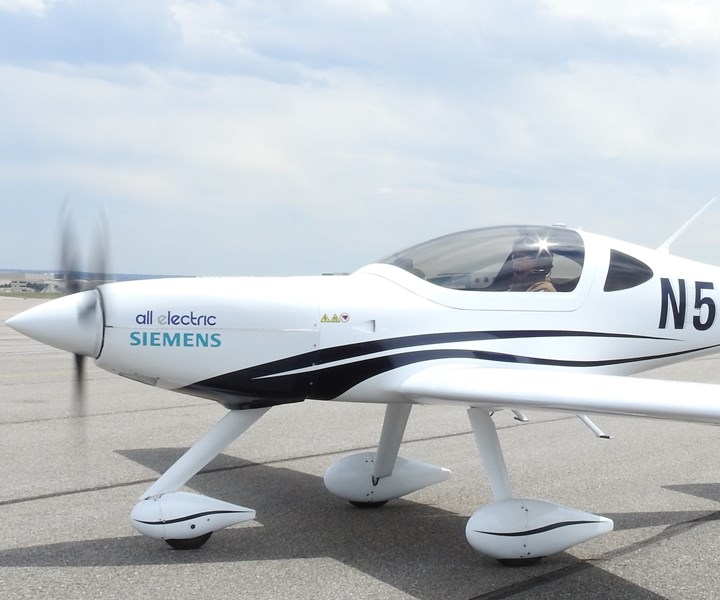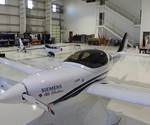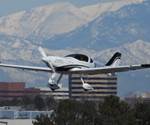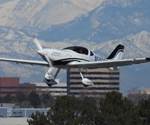eFlyer 2 begins flight testing with Siemens production motor
Bye Aerospace begins a new flight test phase for its two-seat composites-intensive all-electric eFlyer 2 prototype with the new 90 kW Siemens SP70D production motor.

Source | Bye Aerospace
Bye Aerospace (Denver, Colo., U.S.) has begun its next flight test phase for its two-seat composites-intensive all-electric eFlyer 2 prototype, testing the new 90 kW Siemens (Munich, Germany) SP70D production motor.
Following successful flight tests earlier this spring, Bye Aerospace completed the pre-production lower-power prototype motor test program and installed the fully capable, higher-power production motor.
“During the prototype eFlyer 2 flight tests that began on July 17, the new Siemens production motor met or exceeded expectations in all performance indicator areas,” says George E. Bye, CEO of Bye Aerospace. “These important tests are validating the eFlyer’s incredible operating economy, efficiency, and performance while producing no CO2.”
The eFlyer family of aircraft, beginning with the 2-seat eFlyer 2 aims to be the first FAA-certified, practical, all-electric airplanes to serve the flight training and general aviation markets. Siemens is providing the electric propulsion system for the eFlyer 2 airplane—the 57 lb. electric motor with a 90kW peak rating (120 HP), and a continuous power setting of 70kW (94 HP).
“We are excited to see the aircraft in operation for the first time with the SP70D and look forward to continuing the joint path to certification,” says Olaf Otto, Head of Siemens eAircraft business unit. “From my point of view, the eFlyer 2 is going to create a whole new category of training aircraft, really demonstrating the capabilities of electric propulsion systems.”
In addition to the new Siemens production motor, other modifications to the eFlyer 2 prototype include an additional battery pack, a new three-blade developmental propeller from Hartzell Propeller Inc. (Piqua, Ohio, U.S.) among the propellers being evaluated, plus an updated cowling, a new spinner, and a charger plug-in port. The return to flight begins a period of extensive flight test that will provide important flight performance data for the new Siemens motor that will also help determine other suppliers for the conforming production aircraft.
Related Content
-
Toray, University of Chicago speed up polymer recycling R&D
A jointly developed multi-scale computational predictive technique can accurately predict viscoelasticity from the chemical structures of polymers, ramping up product maturation.
-
ASCEND program update: Designing next-gen, high-rate auto and aerospace composites
GKN Aerospace, McLaren Automotive and U.K.-based partners share goals and progress aiming at high-rate, Industry 4.0-enabled, sustainable materials and processes.
-
New online training course targets prepreg basics
JEC World 2024: Composites Expert highlights how its E-Learning Composites Academy platform supports flexible industry learning with new courses developed with Stelia Aerospace North America.













